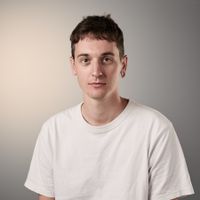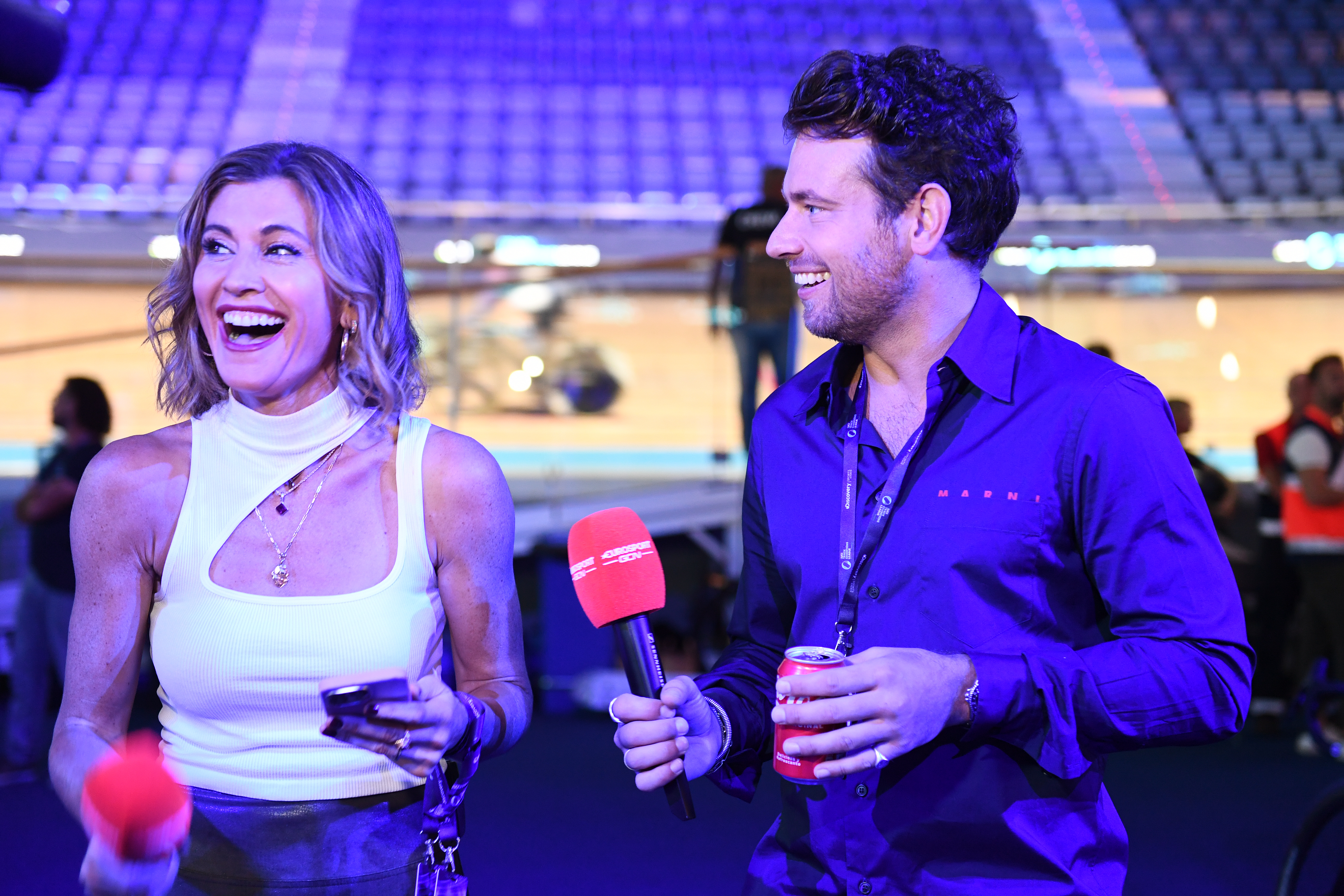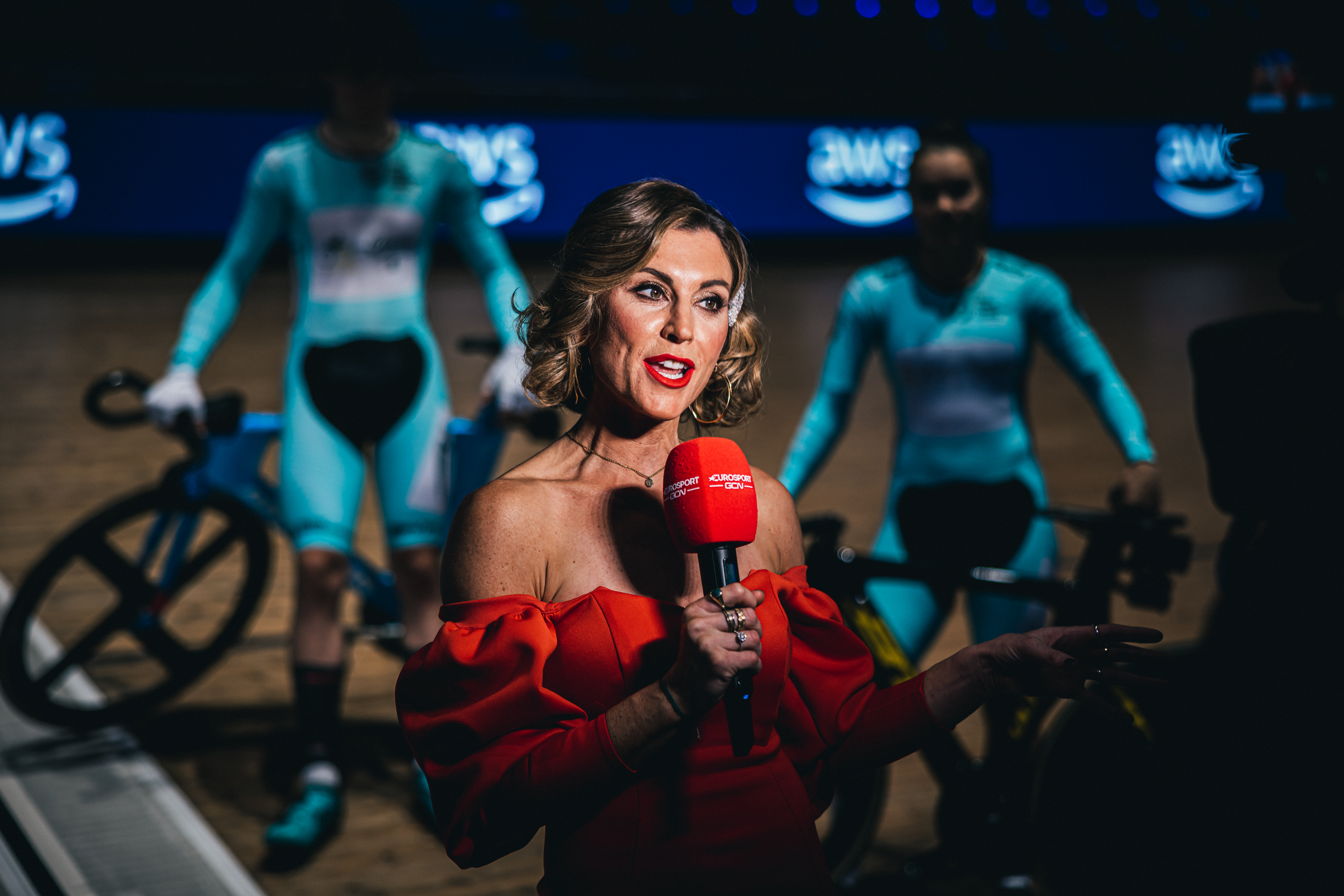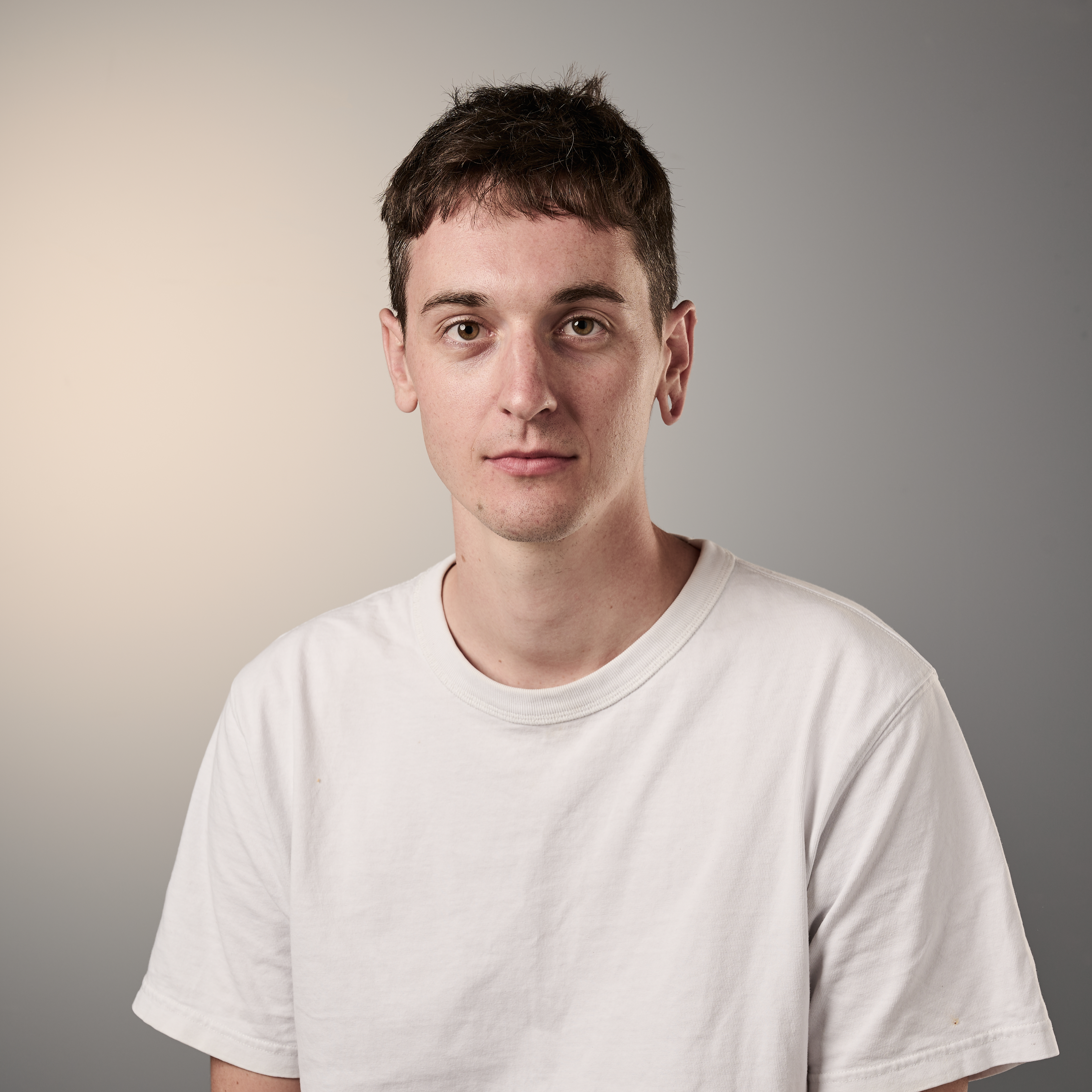'There are people who still believe a woman shouldn't dress as she likes': Orla Chennaoui on discovering cycling, facing sexism, and becoming a braver person
Eurosport's lead cycling presenter takes on our Q&A


Orla Chennaoui is the lead presenter of Eurosport's cycling coverage. A former triple jump champion, she went on to study journalism, and formerly worked for Sky News. As well as being a sports broadcaster, she is also a columnist and founder of Ten Times Braver, a wellness brand that seeks to give people more courage in day-to-day life.
This interview is part of Cycling Weekly's Q&A series.
What's your sporting background?
I've always been into sport. As a kid, I loved participating and watching. My main sport was track and athletics, and I started out doing hurdles – I loved the technicality of it and the drills. Then they introduced the triple jump for underage women, and I thought, "I'll give that a go." And I ended up being quite good at it. I was two-time Irish champion, and under-18 Irish record holder. It's really funny when people mention it because it's such a random sport, and people are always a bit surprised by it, but I just loved the power of sport as a kid.
When and how did you discover cycling?
I discovered it through work. I was a news correspondent at Sky News, and the London Olympics was coming up. My boss had been to Beijing and he decided we needed an Olympics correspondent. I never thought about being a sports correspondent at all, but I thought there's enough of the other stuff – there's politics and finance and whatnot. I applied for the job and got it, and because GB cycling had done so well in Beijing, that was the first sport that I decided to tackle. I went to a Track World Cup, and that was the first time I met Sir Chris Hoy and Victoria Pendleton and Lizzie Deignan. I got to watch track cycling, and I was like "Whoa, this is insane."
I started to read lots of books on cycling, including my dear friend Richard Moore's 'Heroes, Villains and Velodromes', and once you get personalities and narratives, it hooks you in.
The latest race content, interviews, features, reviews and expert buying guides, direct to your inbox!
Then there were rumours within Sky as a business that Team Sky was about to be launched, and I was the only person who knew about cycling, so they shoved me onto that quite quickly. I went to the Giro d'Italia in 2010, and I was hooked. I was just fully in love with it.
What's your earliest memory of pro cycling?
Growing up, we had Sean Kelly and Stephen Roche [in Ireland], and so because of them, we talked about the Tour de France, and we knew about the Tour de France, but I didn't really get it. It blew my mind that there were these Irish athletes beating the rest of the world in France. We didn't have very many sports stars, so they really stood out.

What's the best thing about your job now?
The best thing is I get to watch live sport and I get to be a fan of sport. My husband's not really into sport very much, so I don't get to put it on the TV at home. I'm always fighting for the remote control and trying to get the bike racing or the rugby on, and he's not interested.
There's so much of life that's so serious and hard, and fear is pedalled a lot in the media. Sport is such an antidote to all of it. It's a beautiful distraction. It's such a powerful message that we can send out to the world as to what you can put your body and mind through, and what you can achieve through determination. The fact I get to watch live sport and talk about it, I have to pinch myself that that's actually what I do for a living.
What's the best place your career has taken you?
I got to go to Rio de Janeiro quite a lot before the Olympic Games there, and it was amazing. I was a news journalist, so I'd go to the favelas, I would go and visit proper Rio, and every visit was something a bit different. I'd go to like a boxing camp that was in the middle of one of the most dangerous favelas in Rio de Janeiro. That was fascinating seeing the guns. We needed a guided escort to get in and everything.
I also got to go on safari in Kenya with Chris Froome. And I've been to Tanzania with Mark Cavendish.
Tell me a bit about Ten Times Braver.
Ten Times Braver is a wellness brand that I bring to people, and I do workshops that help people to see what their bravery looks like. It's my passion project, and it's based on the question: What would you do if you were 10 times braver?
The first time I was asked that question, I was almost punched in the gut by it. So often in life we can assume that anything that stands in our way is external. For me, I'm a woman in sport, and that's something I can't help. I'm also a really, really rare non-English accent in UK media, and people maybe don't realise that until they pay attention to it. I've been told my accent is wrong for British television, for example.
When somebody said to me, "What would you do if you were 10 times braver?" I thought it was quite uncomfortable, because it made me say to myself, "What could I do from here?" It gave me agency and responsibility for my life. The more I thought about it, the more I realised, if all of us could be 10 times braver, the world would genuinely be a much better place, because you would do what you wanted to do.

You've spoken openly about the trolling and sexism you've received. How does that impact you?
It probably changes depending on how I'm feeling at the time. Right now, I'd say it's water off a duck's back and it doesn't bother me, but that's because I'm not dealing with very much of it at the minute. In the middle of the Tour de France, if you ask me, I might start crying.
The beauty of social media is that it opens up your eyes to every aspect of humanity, and people you wouldn't normally be dealing with. What's hard for me, as someone who has anxiety as well, is it makes me sometimes question whether my view of the world or my view of humanity is actually accurate, or whether everyone's just horrible all the time. People say, "Ignore it", but I want to be able to reply to the people who are watching the show and saying something nice or criticising us on a valid point. I want to be able to address that and respect the fact they've taken the time to write to me, but that means you're reading everything, so I'm reading the bad bits as well.
People say, "Rise above it", but why should I? Why should I have to? Why should I take all that energy and effort when all I've done is exist here and be the version of me that makes me happy?
It's important to realise that there are significant numbers of people who still believe that a woman shouldn't dress as she likes, that a woman shouldn't have a loud voice, that a woman shouldn't be comfortable in herself, of if you're going to wear a short skirt, you must be in your 20s. It's important that people realise that still exists, so that we all fight to change it.
What advice would you give to budding sports presenters, people who want to be the next Orla?
Don't ever be the next Orla. Don't be the next anyone. Be the first you. I believe so deeply in the power of personality and being yourself. Create your own voice, and create your own way of doing things. These days, it's so much easier to get into the industry than it ever has been, because you can just create your own platform. You can make yourself a voice within the sport simply by publishing your literal voice. So do anything and everything, whether it be starting a YouTube channel, starting a podcast, or curating and creating your social media to make yourself into an authority.
That said, there is no substitute for an awful lot of hard work. People work very, very, very hard to get to where they're at. Make sure you do your research, work hard, and reach out to connections. Just be shameless with people you try to connect with and ask.

Tom joined Cycling Weekly as a news and features writer in the summer of 2022, having previously contributed as a freelancer. He is fluent in French and Spanish, and holds a master's degree in International Journalism. Since 2020, he has been the host of The TT Podcast, offering race analysis and rider interviews.
An enthusiastic cyclist himself, Tom likes it most when the road goes uphill, and actively seeks out double-figure gradients on his rides. His best result is 28th in a hill-climb competition, albeit out of 40 entrants.
You must confirm your public display name before commenting
Please logout and then login again, you will then be prompted to enter your display name.